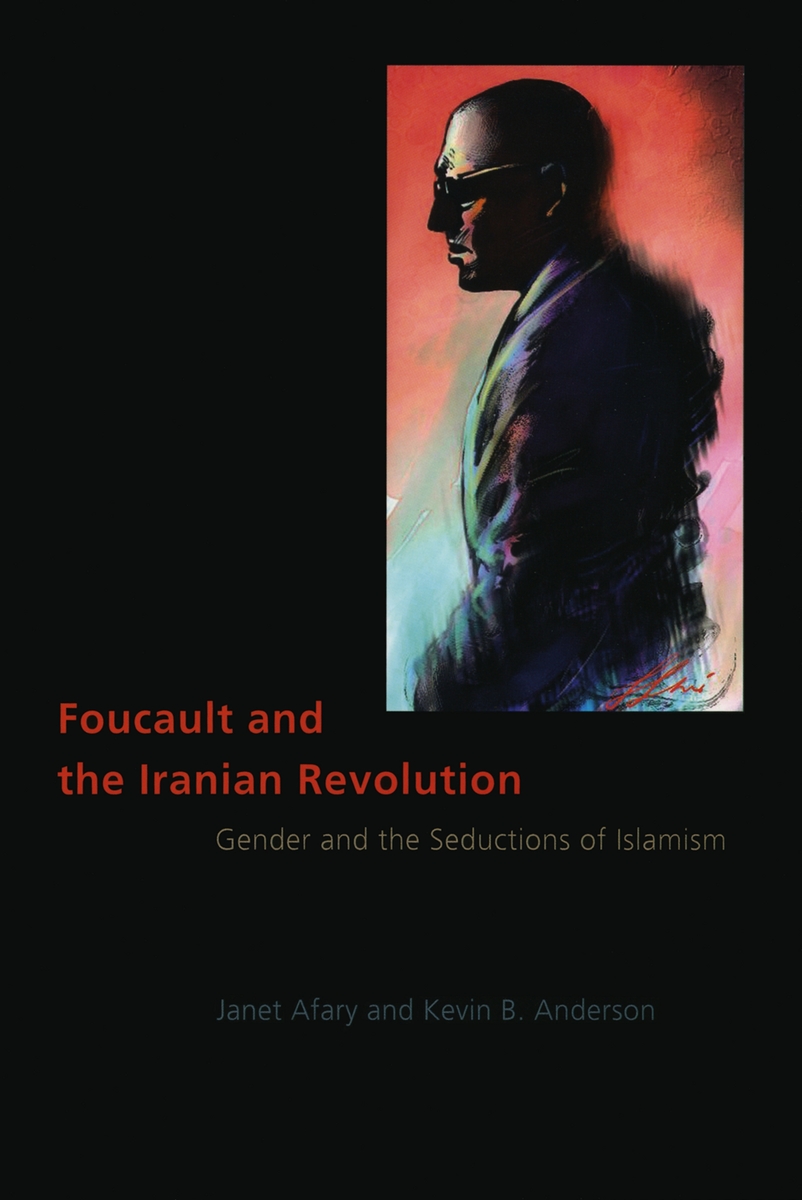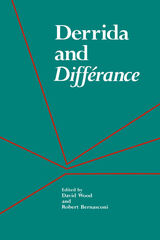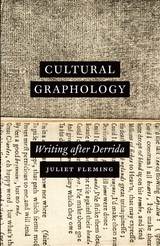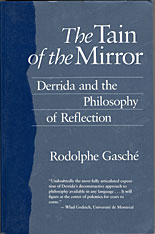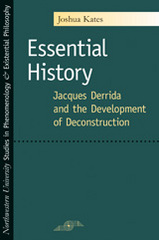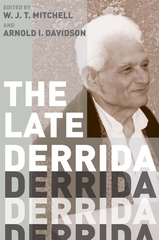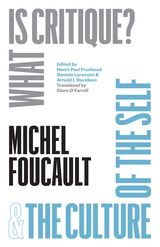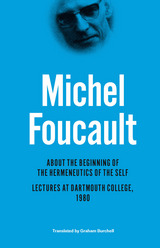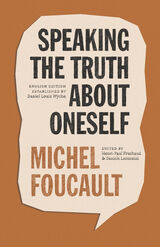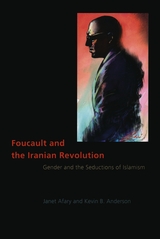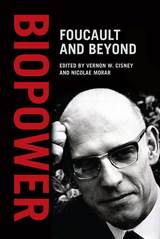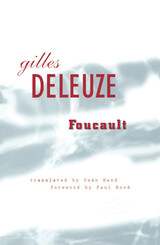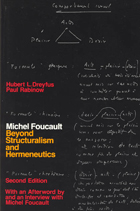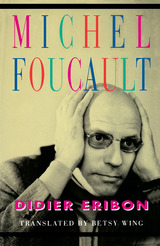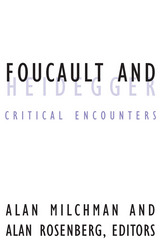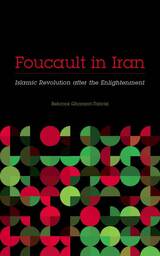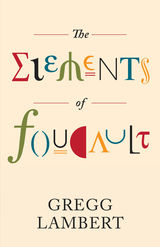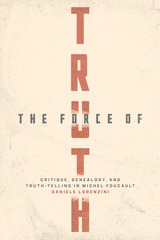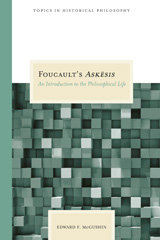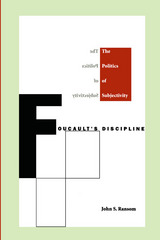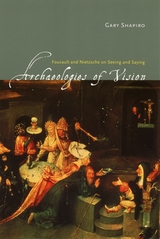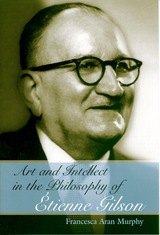"I am very impressed by the authors' clarity of thought, meticulousness of research, and important insights. Their book's originality lies in the way it links Foucault's main ideas to the Iranian revolution, thereby illuminating one through the other. The authors remind us of Foucault's immense influence in the current debates on Islamism and Iran."
— Azar Nafisi, author of Reading Lolita in Tehran
"Foucault and the Iranian Revolution provides an original and groundbreaking examination of Foucault's writing on Iran in the context of his intense interrogation of the differences between modern and traditional social orders. Providing a rich dossier containing translations of Foucault's relatively unknown writings on the Iranian revolution and his critics' responses, Afary and Anderson provide new insights into Foucault's work and the ongoing confrontation between the Muslim world and the West."
— Douglas Kellner, author of From 9/11 to Terror War: The Dangers of the Bush Legacy
"This is an important and extremely timely book. For decades there has been debate, sometimes hushed, sometimes bitter, about Michel Foucault's celebration of the Iranian revolution. What we have lacked is documentary evidence of what was said, and by whom. Afary and Anderson have provided an immense service by translating the relevant writings by Foucault and, more significantly, his critics. The story that emerges from the translations and the thoughtful, measured analysis of them is gripping."
— Mark Lilla, author of The Reckless Mind: Intellectuals in Politics
"This book, which contains the first full translation of Foucault's articles on the Iranian revolution, is essential reading for his political positions in general and his conception of power, as well as for his sexual politics."
— Fredric Jameson, author of Postmodernism, or, The Cultural Logic of Late Capitalism
"Laser-like . . . in their brilliant unraveling of Foucault's Iranian moment, Afary and Anderson seek to guard us more generally from accepting what we do not know simply out of repugnance for what we do."
— Bookforum
"The authors' analysis of Foucault's journalistic impressions sheds light on a presumed resistance to the material body of the West. . . . insightful . . ."
— Library Journal
"[Foucault's] dispatches--now fully available in translation--shed some light on the illusions of intellectuals in our own time. . . .at a time when religion is resurgent in politics and Western liberals are divided between interventionists and anti-imperialists, Foucault's particular blend of blindness and insight about the Islamists remains instructive. The authors dissect the shortcuts and evasions that led Foucault into his distinctive stance."
— Wesley Yang, Boston Globe
"The whole of Foucault's Iranian journalism--a total of fifteen articles and interviews--was republished in France in 1994 as part of a four-volume anthology of his occasional writings. Ever since then, French critics have made the most of his 'error' over Islamism, and some of them sought to implicate him in the attacks on Washington and New York in 2001. In the English-speaking world, however, the Iranian writings have hitherto been ignored; but the anomaly is now being put right with some authority by Janet Afary and Kevin B. Anderson. In Foucault and the Iranian Revolution, they tell the full story of Foucault's sudden induction into the journalist's trade and his contacts with exiles in Paris and rebels in Iran, concluding with an appendix of 100 pages comprising translations of Foucault's articles, together with some of the reactions they provoked, copiously annotated and explained. One could hardly have asked for more."
— Jonathan Ree, The Nation
"The publication of this book is a major event in the world of Foucault scholarship, and it can be expected to generate a torrent of discussion, debate, reconsideration, and intellectual fireworks. Foucault's adventure in geopolitical journalism provoked considerable controversy at the time. In unearthing that controversy and forcing us to revisit it, Afary and Anderson's book is certain to evoke the same passions and push the same buttons that surfaced during the original dust-up, because the issues at the heart of the debate are still very much with us."
— The Common Review
"Those interested in contemporary social theory in general and Foucault in particular will be well-served by Afary's and Anderson's critical treatment. But in the end, the book's wider relevance lies in the way that they are able to problematise the political elements of postmodern thought. . . . Today when rational left politics has been on the defensive in the midst of rising conservatism in the developed west and the emergence of fundamentalisms of different stripes in the developing world, Afary's and Anderson's analysis takes on a special, indeed urgent relevance for our times."
— Democratiya
"Foucault and the Iranian Revolution presents a concise and accurate account of Foucault's philosophy in clear and translucent language. The book also provides many helpful and meticulous oberservations about the Iranian Revolution and its historical antecedents. Readers with little or no background will learn about important subjects in Foucault's philosophy, Christian theology, Shi'i theology, and Iranian history. This book is one of the most important recent contributions to Foucauldian studies and will also contribute to a better understanding of the Iranian Revolution."
— BBC Persian.com
"An insightful look at how Foucault's experiences in Iran influenced his ideas on the Enlightenment, homosexuality, and his search for political spirituality."
— Middle East Journal
"Afary and Andeson's book will certainly reopem debate on a very interesting moment in Foucault's life and work, and should lead to reconsiderations of some of the most difficult, yet most important, political and social questions of this time."
— Eric A. Wolfe, Magill's Literary Annual
"[Foucault's] insights into the role of Islam in modernizing societies remain relevant today."
— Pankaj Mishra, New York Review of Books
"This work offers an important contribution to the Foucault and religion debate, because it opens up the central issues of pre-modern and modern critical consciousness and the place of religion in our modern political worlds."
— Jeremy Carrette, Journal of Religion
"Afary and Anderson have done an important sevice to the scholarly community by publishing this book. Foucault's essays on the Iranian Revolution are critical reading for anyone interested in Foucault's politics, the general question of revolution, or the specific subject of Iran."
— Norma Claire Moruzzi, International Journal of Middle East Studies
"Afary and Anderson assign a deeper cause to Foucault's persistent misreading of the Khomeini revolution: His deep disdain for women. . . . Till now, most students of Foucault have treated the Maitre's yearnings as an odd, embarrassing, but ultimately trivial derogation from his great contributions to modern thought. Afary and Anderson have restored them to the place that Foucault himself believed they occupied: the very center."
— David Frum, National Review Online
"Foucault's essays on the Iranian Revolution are critical reading for anyone interested in Foucault's politics, the general question of revolution, or the specific subject of Iran. Despite our differences of interpretation, I welcome Afary and Aderson's important contribution to the debates on these subjects."
— Norma Claire Maruzzi, International Journal of Middle Eastern Studies
